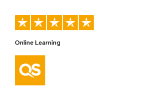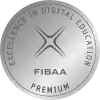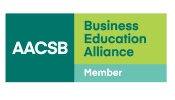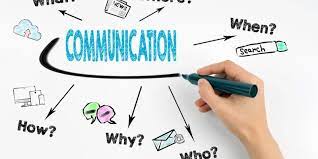
Effective Communication Skills
The Effective Communication Skills course is designed to help individuals enhance their communication abilities in both personal and professional settings. Effective communication is essential for conveying ideas, building relationships, and achieving goals. This course typically covers various aspects of communication, including verbal and nonverbal communication, active listening, assertiveness, and interpersonal skills.
Overview

Effective Communication Skills
Course Learning Objectives
Course Learning Objectives (CLOs):
By the end of this course, learners will be able to:
Understand the importance of effective communication: Recognize the value of effective communication in personal and professional settings.
Identify and apply effective verbal communication skills: Use verbal communication strategies to convey messages effectively.
Develop active listening skills: Listen attentively to others and respond appropriately.
Manage conflicts effectively: Resolve conflicts using constructive communication techniques.
Use nonverbal communication effectively: Utilize nonverbal cues to convey messages and manage impressions.
Adapt communication style to different contexts: Adjust communication style to suit different situations and audiences.
Specific Learning Objectives (SLOs):
Upon completing this course, learners will be able to:
Articulate a clear understanding of the principles of effective communication
Demonstrate effective verbal and nonverbal communication skills in group discussions and presentations
Apply active listening skills in diverse scenarios, including one-on-one conversations and group interactions
Resolve conflicts using constructive communication techniques, such as assertiveness and empathy
Identify and use nonverbal cues to convey messages and manage impressions
Adapt their communication style to suit different contexts, such as formal or informal settings
Throughout this course, learners will engage in various activities, discussions, and exercises designed to help them develop these essential communication skills.
By the end of the course, learners will be equipped with the knowledge and skills necessary to communicate effectively in a variety of situations, both personally and professionally.

Benefits
With AI, the world is your oyster! It is an emerging field, rapidly growing, ever evolving and watched with a keen eye by industries and markets globally. There are many benefits to an education in AI:
In demand Career
With a Bachelor in artificial intelligence you are equipped with in-demand skills in the rapidly growing field of AI. Knowledge of developing AI systems, data analysis and AI techniques makes you valuable across industries, right from healthcare, finance, tech and more. This degree prepares you for career that has multiple options for diversification. AI professionals include AI engineers, data scientists, machine learning specialists, AI consultants, researchers and more. AI is transformative technology that is revolutionising the world. With an education background in AI, you are set up in an in-demand career field with an exciting future ahead!
Innovation and advancement
Applied AI is all about finding solutions and using AI systems to make life simpler. Applied AI draws on its solid foundation in Computer Science to analyse and provide solutions for real world challenges. You are prepared to address complex problems and contribute meaningfully in domains like healthcare diagnostics, fraud detection, autonomous vehicles, personalised recommendations and more. Being able to apply AI techniques for solving tasks makes for an extremely rewarding and impactful job role!
Solving real world problems
AI aims to constantly bridge the gap between natural intelligence and machine learning - it is a field of cutting edge research, innovation and advancing technology. This makes it ever evolving, with new algorithms, models and techniques being developed. By studying AI at an undergraduate level, you gain a strong foundation in AI fundamentals that help you better understand the latest advancements. You step into a career that empowers you to push the boundaries of AI, contribute to research and development and drive innovation in the field.
100% International
Study at your own pace from anywhere in the world
Recommended by 96% of our graduates
According to our latest alumni survey
50,000+ students
enrolled in Germany’s largest university
Study contents
Contents
I. Introduction
Importance of effective communication
Definition of effective communication
Types of communication (verbal and nonverbal)
II. Verbal Communication Skills
Speaking skills
Clarity and concision
Tone and pitch
Body language
Active listening
Asking questions effectively
Giving feedback effectively
III. Nonverbal Communication Skills
Eye contact
Facial expressions
Posture and body language
Proximity and personal space
Paralinguistic cues (e.g., tone of voice, volume)
IV. Written Communication Skills
Writing style and tone
Clarity and concision in writing
Organization and structure
Grammar and spelling
Using visual aids (e.g., diagrams, charts, graphs)
V. Conflict Resolution and Negotiation Skills
Identifying conflicts and triggers
Communication strategies for resolving conflicts
Effective negotiation techniques
Active listening
Empathy and understanding
Focus on interests, not positions
VI. Emotional Intelligence and Empathy
Understanding emotions and emotional intelligence
Developing empathy and emotional awareness
Recognizing emotional cues
Practicing emotional regulation
VII. Cultural Awareness and Sensitivity
Understanding cultural differences in communication styles
Verbal and nonverbal cues
Communication norms and protocols
Avoiding cultural faux pas
VIII. Technology and Communication Tools
Using technology for effective communication (e.g., email, video conferencing)
Digital etiquette and netiquette
Using communication tools effectively (e.g., messaging apps, social media)
IX. Practice and Feedback
Practicing effective communication skills in real-life scenarios
Seeking feedback from others on communication style and effectiveness
X. Conclusion
Recap of key takeaways on effective communication skills
Importance of continuous improvement and practice.
Admission
Admission Criteria
Option 1:
As I reflect on my past experiences, I realize that effective communication has been a recurring theme in my life. Whether it was navigating complex team projects in college, communicating with clients in my previous job, or simply conveying my needs to loved ones, I've come to understand the importance of clear and concise communication. I'm excited to enroll in this course because I'm eager to learn strategies and techniques that will help me become a more effective communicator. In this essay, please describe a specific situation where you struggled with communication and how you overcame the challenge.
Option 2:
As a [professionastudentndividual], I've noticed that ineffective communication often leads to misunderstandings, misinterpretations, and missed opportunities. In my previous [work/school] experience, I've witnessed how a single miscommunication can escalate into a full-blown conflict. I believe that effective communication is the key to building strong relationships and achieving success. This course will equip me with the skills to communicate more effectively, both verbally and non-verbally. Please describe a time when you witnessed the impact of effective communication in your personal or professional life.
Option 3:
In today's fast-paced world, effective communication is more crucial than ever. With the rise of digital communication tools and the increasing complexity of globalized workplaces, it's easy to get lost in the noise. As someone who wants to excel in my chosen profession, I recognize the need to develop my communication skills to stay ahead of the curve. This course will help me refine my skills in active listening, conflict resolution, and public speaking. Please tell us about a situation where you felt that your communication skills were lacking, and how you would approach it differently today.
Option 4:
Effective communication is not just about conveying information; it's about building trust, fostering empathy, and understanding. As someone who values relationships and collaboration, I believe that effective communication is essential for achieving personal and professional goals. In this essay, please describe a time when you had to communicate with someone from a different cultural background or with a differing perspective. How did you adapt your communication style, and what did you learn from the experience?
Option 5:
As a curious individual who is passionate about learning and growth, I'm eager to develop my skills in effective communication. Whether it's leading a team project, presenting an idea to investors, or simply having a conversation with a friend or family member, I recognize that clear and concise communication is essential for success. This course will provide me with the tools and techniques to communicate more effectively in all aspects of my life. Please tell us why you want to take this course and what specific skills or knowledge you hope to gain from it.
Remember to tailor your essay to your unique experiences and goals, and make sure to highlight your enthusiasm for learning and improving your communication skills!
Careers
Start your Career Now
Public Relations Specialist: PR specialists must communicate effectively with clients, media, and the public to maintain a positive image and reputation.
Sales Representative: Sales reps need to communicate product information, negotiate prices, and build rapport with customers to close deals.
Event Planner: Event planners must coordinate with vendors, speakers, and attendees, ensuring that all details are communicated clearly and efficiently.
Human Resources Manager: HR managers must communicate policies, benefits, and company culture to employees, while also facilitating open communication between employees and management.
Marketing Manager: Marketers need to develop compelling marketing campaigns, communicate with target audiences, and collaborate with cross-functional teams.
Diplomat: Diplomats work in international relations, negotiating and communicating with foreign governments and leaders to resolve conflicts and promote cooperation.
Teacher/Professor: Teachers/professors must communicate complex information to students, provide feedback, and facilitate discussions in the classroom.
Journalist: Journalists must research, interview sources, and write compelling articles for publication.
Business Consultant: Consultants help organizations improve operations by analyzing data, communicating findings, and implementing solutions.
Customer Service Representative: Customer service reps must resolve customer complaints, answer questions, and provide solutions in a friendly and professional manner.
Executive Assistant: Executive assistants support senior executives by preparing presentations, taking meeting minutes, and communicating on their behalf.
Non-Profit Professional: Non-profit professionals work with diverse stakeholders to raise funds, promote causes, and communicate mission-driven initiatives.
Financial Advisor: Financial advisors must explain complex financial concepts to clients, providing guidance on investment strategies and risk management.
Social Media Manager: Social media managers create content, engage with followers, and monitor analytics to ensure effective online communication.
Negotiator: Negotiators in industries like law, business, or politics must communicate effectively to reach mutually beneficial agreements.
Tour Guide: Tour guides must communicate historical facts, cultural insights, and safety information to tourists while ensuring a smooth travel experience.
Recruiter: Recruiters must communicate job opportunities, interview candidates, and build relationships with clients to find the best talent for their needs.
Speechwriter: Speechwriters craft compelling speeches for CEOs, politicians, or thought leaders to convey key messages effectively.
Interviewer: Interviewers in fields like journalism or market research must ask open-ended questions to gather insightful information from subjects.
Conference Facilitator: Conference facilitators ensure that meetings run smoothly by introducing speakers, moderating discussions, and keeping attendees engaged.
Student reviews
Coming Soon.
Tuition fees
All our study programmes include the following benefits
- Teaching and study material
- Marking of your end-of-module exams
- Monthly live and recorded tutorials
- Use of the online campus
- Individual study coaching
- Online exams
- Career coaching
- Learn English for free
Our global recognition

IU is recognised by WES Canada and U.S., which means your degree can be converted to points in the local system for purposes of immigration, work, or studies.
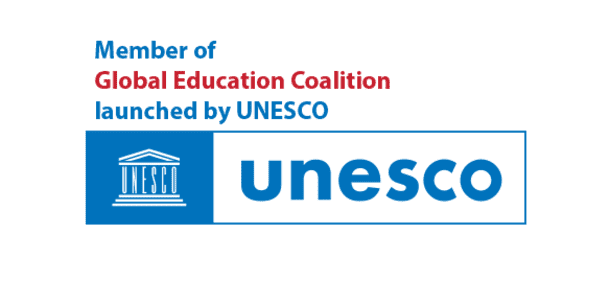
As the first EU institution in UNESCO's Global Education Coalition, IU is committed to ensuring accessible quality education to students in crisis worldwide through free online micro-credentials.
Our company partners

For over 20 years, IU has established partnerships with leading global companies. This offers you the chance to gain firsthand experience through internships and projects and allow us to adapt our learning content to the ever-evolving needs of the labour market. You'll benefit from an education designed to bridge the gap between theory and real-world practice, ensuring your readiness for your future career.
Recognition
Recognition of previous achievements
Have you already completed a training course, studied at a university or gained work experience? Have you completed a course or a learning path through EPIBM LinkedIn Learning, and earned a certificate? Then you have the opportunity to get your previous achievements recognised, and complete your studies at EPIBM sooner.

Save time:
Skip individual modules or whole semesters!
Even before you apply for a study programme, we’ll gladly check whether we can take your previous achievements into account: 100% online, no strings attached. Simply fill in our recognition application form, which you can find under the content section of each study programme's webpage, and upload it via our upload section. You can also e-mail it to us, or send it via post.
Send an email to [email protected] to find out which previous achievements you can get recognised. You can get your previous achievements recognised during your studies.
Recognition files
Autonomous vehicles developer
With AI, the world is your oyster! It is an emerging field, rapidly growing, ever evolving and watched with a keen eye by industries and markets globally. There are many benefits to an education in AI:
That’s why after graduating, you’ll be able to apply your professional skills and knowledge, and work for development teams at any sector you find appealing.


Augmented reality (AR/VR) developer
Virtual (or augmented) reality isn’t all just fun and games, as great and enjoyable as that aspect is. It can also be used for groundbreaking social and psychological research, defensive purposes and therapy.
With an Applied Artificial Intelligence degree from IU University of Applied Sciences, you can take part in this vital field of technological development, and work on a wide variety of interesting projects.
Change what the world thinks about the possibilities that AI offers, and make a real difference in people’s lives, while enjoying every step of the process.
F.A.Q
Frequently Asked Questions
You might also be interested in these study programmes
Accredited and certified







